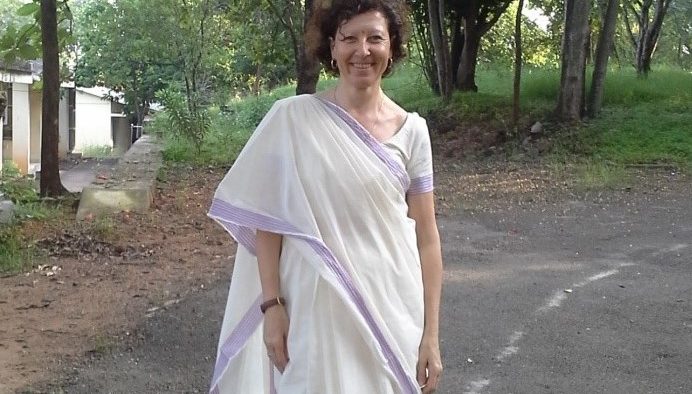My name is Silvia and I was born of Italian parents in Buenos Aires, Argentina. At the age of 13, I arrived in Sydney, Australia, with my family. This was not a happy time for me as, in the 1970s, there was much prejudice against Italians in this country.
From a very tender age, I often wondered what this life was all about and used to ask myself: ‘There must be something more to life than this - working, saving, buying property, getting old, sick and dying and leaving all my earthly goods to my children – what was the point in all that?’
I remember sitting in a café in Paris at the age of 19, totally miserable as I just had all my money stolen in the subway, thinking ‘If Paris can’t make me happy, it must have something to do with me’.
I accumulated many grievances throughout my life, including a failed marriage, and found myself unable to forgive and forget. Innately, I knew there was a ‘right way’ of living my life, regardless of what was happening to me, but I didn’t discover what that was until my husband, Bede, introduced me to the writings of a wonderful Swami by the name of Pujya Dayananda Saraswathi.
I began to read lots of his books and started to realise that it was indeed possible to live this life in a totally objective and constructive way, and that one could heal one’s psychological past by living rightly in the present. This was an extraordinarily helpful discovery for me.
When my husband suggested the possibility of going to Swamiji’s ashram in India for a 3-year course during 2014, I jumped at the opportunity even though it meant dropping everything, including my job. That was my first visit to this amazing country, so full of colours and friendly people. What I found striking was the way the women dressed in their colourful saris, so feminine and aesthetically pleasing. This was a stark contrast to how western women tend to dress these days, many of whom seem under pressure to appear sexually attractive.
Women in our culture tend to fall under the corporately-inspired pop culture which aggressively undermines the role of motherhood and family. Dayanandaji pointed out the value of traditional values, including the needful role women play in society. This strongly resonated with me.
I adjusted quite well to the ashram life and loved listening to Swamiji every day. I would quickly come back to my room and transcribe his talks, which I refer back to even today and have shared with many of my friends. Swamiji is still an illuminating light in my life.
Thanks to this wonderful, simple but deep man, who lived his teaching, I was able to slowly forgive and forget my past and present grievances. Even though he was talking to a large group of students, it almost seemed as if he was personally talking to me, describing my despairs and struggles but, at the same time, unfolding what it means to live a meaningful and happy life.
He taught me what right living really was, which consisted of living my life in the light of three principles; namely, non-harmfulness, beneficial contribution or doing what is needful, and non-disturbance. My Vedantic practice consists of conforming my actions to these three principles in all my relationships, on a day-to-day basis.
Swamiji did not simply unfold a whole list of external rules to follow; rather, he showed me the value of living in the right way. He said a beautiful thing: ‘If you protect dharma, dharma protects you’.
The way of living that he outlined for me has transformed (and continues to do so) all my personal relations, including some very troublesome family relationships which seemed impossible to resolve.
I am deeply grateful to have met this traditional Hindu monk who was not only kind and accepting, but also had a wisdom that he felt impelled to share with all of us, including a Western woman like myself.
The amazing thing about Swamiji is that he was devoid of all forms of self-promotion, which is very rare. He unfolded the Scriptures, not himself and constantly brought to our attention the importance of coming into harmony with ourselves, others and the world through living a God-centred life.




